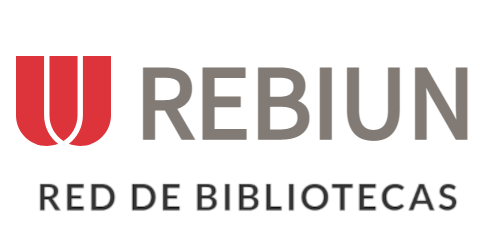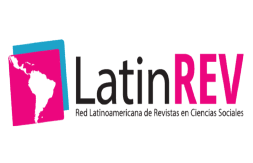Gamificación en la educación primaria: un enfoque para diversos estilos de aprendizaje en Ecuador
DOI:
https://doi.org/10.69639/arandu.v12i3.1349Palabras clave:
gamificación, educación, motivación, rendimientoResumen
La presente investigación examina el impacto de la gamificación en la educación primaria en Ecuador, centrando su atención en cómo esta metodología puede mejorar la motivación y el rendimiento académico de los estudiantes. La gamificación se define como la aplicación de elementos de diseño de juegos en contextos educativos, con el objetivo de hacer el aprendizaje más atractivo y participativo. El objetivo principal de esta investigación es evaluar la efectividad de las estrategias de gamificación en el aula, analizando su influencia en la motivación de los estudiantes y en su desempeño académico en materias clave como matemáticas y lenguaje. Los hallazgos revelaron un aumento significativo en la motivación de los estudiantes, reflejado en las puntuaciones de interés y satisfacción con las actividades educativas. Además, se observó una mejora en el rendimiento académico, con incrementos en las calificaciones de matemáticas y lenguaje. También se destacó un aumento en la participación activa y la colaboración entre los estudiantes, así como una percepción positiva de los docentes sobre la efectividad de la gamificación. En conclusión, la investigación sugiere que la gamificación puede ser una herramienta valiosa para transformar la educación primaria en Ecuador, mejorando la experiencia de aprendizaje de los estudiantes. Se recomienda que las instituciones educativas implementen estas estrategias y proporcionen capacitación a los docentes para maximizar su efectividad.
Descargas
Citas
American Psychological Association. (2017, January 1). About APA. https://www.apa.org/about/
American Psychological Association. (2020). Guidelines for the ethical conduct of research in the care of animals. https://www.apa.org/science/leadership/animal-research
Bandura, A. (1997). Self-efficacy: The exercise of control. New York: W. H. Freeman.
Bandura, A. (1999). Social cognitive theory: An agentic perspective. In D. H. Schunk & B. J. Zimmerman (Eds.), Self-regulation of learning and performance: Theory, research, and practice (pp. 239-266). Routledge.
Bergman, T. J. (2017). Motivation. In Encyclopedia of personality and individual differences. Springer.
Bernstein, R. S. (2020, March 26). How to write a great research paper. Scribbr. https://www.scribbr.com/category/research-paper/
Bjork, R. A. (1989). Retrieval inhibition as an adaptive mechanism in human memory. In H. L. Roediger III & F. I. M. Craik (Eds.), Varieties of memory & consciousness: Essays in honour of Endel Tulving (pp. 309-330). Lawrence Erlbaum Associates.
Bowman, S. L. (2018). The effects of mindfulness on test anxiety (Doctoral dissertation). University of North Carolina at Chapel Hill.
Brown, L. M. (2018). Feminist therapy (2nd ed.). American Psychological Association. https://doi.org/10.1037/0000092-000
Brown, P. (2021, June). Innovations in teaching: Gamification in the classroom. National Conference on Education, New York, NY.
Davidson, R. J. (2000). Affective style, psychopathology, and resilience: Brain mechanisms and plasticity. In A. Watts (Ed.), The science of hope (pp. 249-272). Brunner/Mazel.
Deci, E. L., & Ryan, R. M. (2000). The "what" and "why" of goal pursuits: Human needs and the self-determination of behavior. Psychological Inquiry, 11(4), 227-268. https://doi.org/10.1207/S15327965PLI1104_01
Duolingo. (2023). Duolingo (5.125.4) [Mobile app]. Google Play Store. https://play.google.com/store/apps/details?id=com.duolingo&hl=en
Edutopia. (2021, August 15). The impact of gamification in education. https://www.edutopia.org/article/impact-gamification-education
Gilbert, D., Pinel, E. C., Wilson, T. D., Blumberg, S. J., & Wheatley, T. P. (2024). Social psychology. W. W. Norton & Company.
Harris, L. (2014). Instructional leadership capacity for special education: What does it look like and how is it developed? (Doctoral dissertation, University of Washington).
Hyde, J. S. (2005). The gender similarities hypothesis. American Psychologist, 60(6), 581-592.
Kahneman, D., & Tversky, A. (1979). Judgment under uncertainty: Heuristics and biases. Cambridge University Press.
Merriam-Webster. (2020). Merriam-Webster's collegiate dictionary (11th ed.). Merriam-Webster.
National Geographic. (2020, July 15). Blue whales can weigh up to 200 tons—that’s about the same as 15 school buses! [Tweet]. Twitter. https://twitter.com/NatGeo/status/1283449384797437952
National Institute of Mental Health. (2022). Statistics on mental illness. https://www.nimh.nih.gov/health/statistics
Sadock, B. J., Sadock, V. A., & Ruiz, P. (2014). Kaplan & Sadock's synopsis of psychiatry: Behavioral sciences/clinical psychiatry (11th ed.). Wolters Kluwer.
Schunk, D. H. (2003). Self-efficacy for reading and writing: Influence of modeling, goal setting, and self-evaluation. Reading & Writing Quarterly, 19(2), 159-172. https://doi.org/10.1080/10573560308219
Smith, J. (2020). The innovator's dilemma. Harvard Business Review Press.
Smith, J., & Jones, M. (2019, August). The future of education. Annual Meeting of the American Educational Research Association, Toronto, Canada.
Spielberg, S. (Director). (1993). Jurassic Park [Película]. Universal Pictures.
Wegener, D. T., & Petty, R. E. (1994). Mood management across affective states: The hedonic contingency hypothesis. Journal of Personality and Social Psychology, 66, 1034-1048.
Whedon, J. (Writer & Director). (1997). Hush [Television series episode]. In J. Whedon (Producer), Buffy the vampire slayer. Mutant Enemy.
World Health Organization. (2019). Global strategy on digital health 2020-2025. https://www.who.int/publications/i/item/9789241512505
Yardi, S. (2019, November 14). The role of technology in education. EdTech Review. https://edtechreview.in/e-learning/3918-role-of-technology-in-education
Publicado
Cómo citar
Número
Sección
Licencia
Derechos de autor 2025 Nidia del Carmen Sarango Zhuma, Marcia Janeht Riera Jimenez, Betty Noemi Andrade Imaicela , Rufina Araceli Benavides Zambrano, Betty Belen Baños Borja

Esta obra está bajo una licencia internacional Creative Commons Atribución 4.0.






















